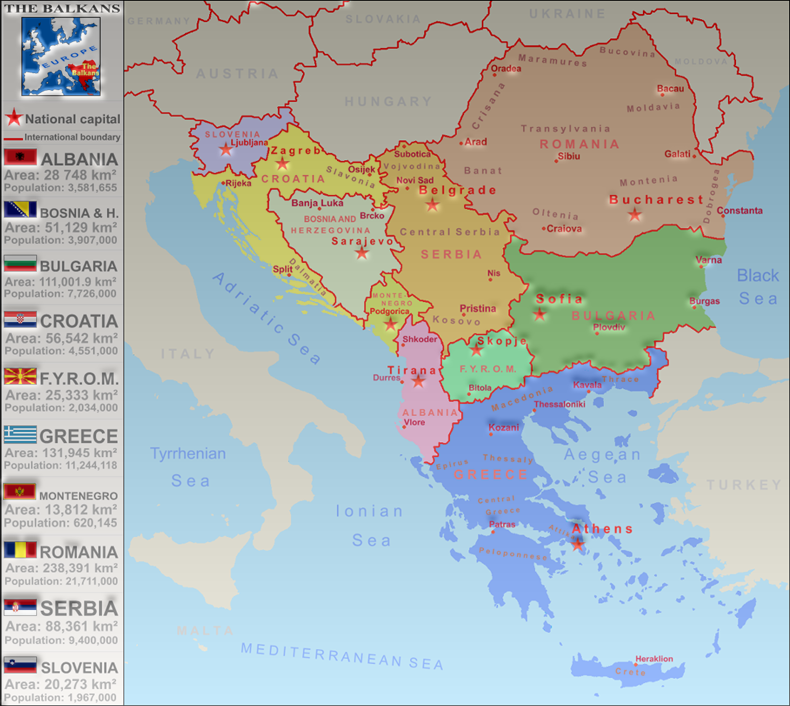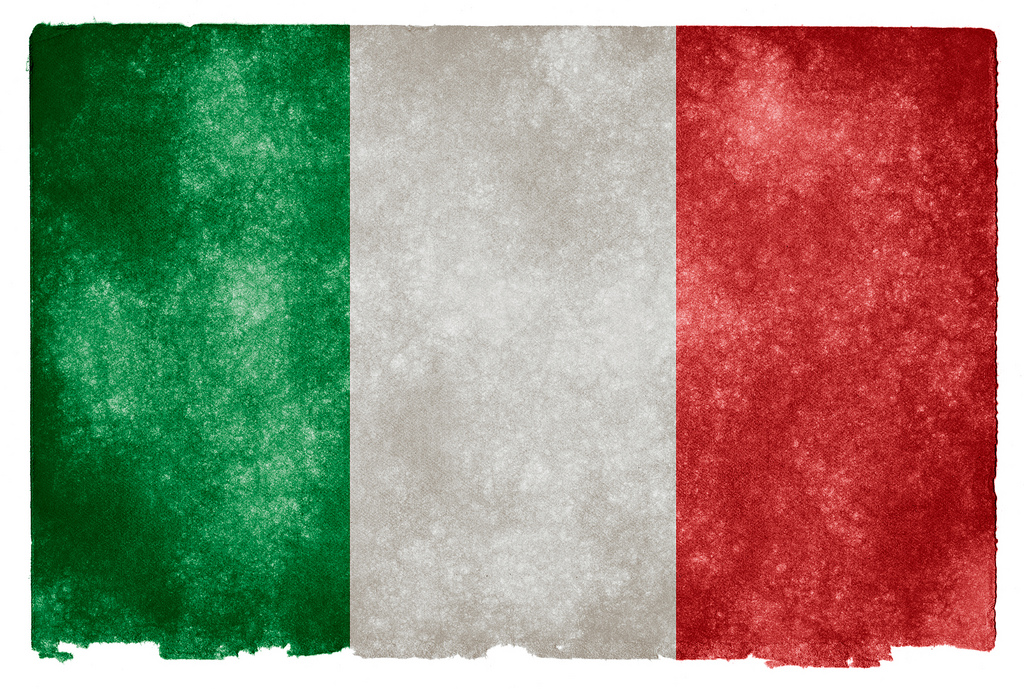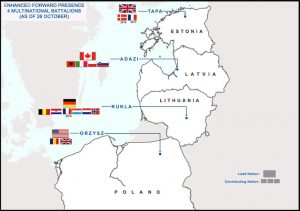
Views: 1001
The path of the Balkans to the Mediterranean geographically goes through three countries – Italy, Greece and Turkey. Of these three countries, Italy is the most important for the Balkans in the European context, because it is the third strongest country in the EU (a country that until recently held the position of Governor of the European Central Bank, Mario Draghi, which is currently, as the current Italian Prime Minister, a “new” hope of European politics), while the influence of Greece within the EU is still weaker than the Italian one, and Turkey is not an EU member at all. Therefore, it can be said that Italy is not only a mediator of the Balkans towards the Mediterranean, but also one of the main mediators towards the European Union. Especially since Italy, due to its decades-long economic stagnation and frequent political instabilities, can better understand similar economic and political problems faced by the Balkan states, which, for example, is a little harder for economically and politically “supersonic” Germany.
Italy is thus a kind of natural “hostess” of the Balkans towards the Mediterranean and the European Union, and undoubtedly the strongest intra-European advocate of the accession to the EU of those Balkan states that have not yet become members of the Union. Its objective shortcomings in the European context (economic stagnation and frequent political instability) are in fact its comparative advantages in communicating with Balkan countries plagued by similar problems. Simply put, the political mentality of Italy is closer to the Balkans than, for example, the political mentality of the Germans or Scandinavians. That is why Italy is the strongest and the most agile advocate for the Balkans in the European Union, especially since Italy’s undoubted strategic interest is for the entire Balkans to join the European Union and thus practically solve the problem of stability of its north-eastern neighborhood, preventing any instabilities if this space becomes the scene of any future crisis.
Italy ‘s strategic cooperation with the Western Balkans was institutionalized at the Ancona Summit in 2000., where started so-called Adriatic and Ionian Initiative, whose members today are Italy, Greece, Serbia, Slovenia, Croatia, Bosnia and Herzegovina, Montenegro, Albania and Northern Macedonia. Later, in 2014, this strategic initiative was “updated” with the establishment of the European Union Strategy for the Adriatic and Ionian Region (EUSAIR), in which Italy and the Balkan countries are the main strategic partners and factors. This strategy is one of several European macro strategies and its role is to connect the Mediterranean with the Balkans through the “initiative of two seas” – the Adriatic and the Ionian. Italy has been wisely chosen as one of the main countries of these initiatives because it is one of the most important economic partners of the Balkan countries and alternates with Germany in the first two positions as main foreign trade partner of the Balkan countries – and it also has the capacity to be a kind of geopolitical air-bag for the traditional “seismic” Balkans in geopolitical terms.
Namely, Italy has the capacity to approach the Balkan region – which is traditionally geopolitically very unstabile as a meeting place of various geopolitical powers (EU, USA, Russia, China, Turkey) – with a certain geopolitical balance, since has always been, even during the Cold War, a country of geopolitical balance, since had correct relations with then Soviet Union, as it has correct relations with today’s Russia (and China), so it can positively influence geopolitical events in the Balkans, as a kind of “geopolitical air-bag”, thus protecting as well the stability of its northeastern neighborhood.
For Italy, as one of the most important economic partners of the Balkan countries, the Europeanization of the Western Balkans is a clear strategic national interest, primarily for economic, but also for political and security reasons and it constantly provides strong support to the countries of the region in this process. However, despite Italy’s strong political support for EU enlargement to the Balkans, since 2011, as the economic crisis deepened, Italy’s political role in the region has been weakening, and its commitment to the European integration of the Western Balkans is today – as with other European powers – more declarative than essential.
 In order not to get lost in empty declarations about the “European future of the region”, we should rethink the relationship between the Western Balkans and the European Union – and instead of repeating like parrots the phrases about the “imminent” full membership of the Western Balkans in the EU; for which there are less and less chances for it to happen in the foreseeable future (both due to the process in the EU itself and wider global processes) – it is necessary to devise new and creative solutions for the future. One such solution could be to define some kind of future privileged partnership for non-EU countries of the Western Balkans in relations with the EU, if full membership proves to be an unrealistic option in the short term. This is already enabled by the so-called the new methodology of the Western Balkans’ accession to the EU, proposed by French President Macron, which allows certain sectors of the state and society – in line with possible successful reform moves – to be fully integrated into the EU system, even if there is no explicit full membership.
In order not to get lost in empty declarations about the “European future of the region”, we should rethink the relationship between the Western Balkans and the European Union – and instead of repeating like parrots the phrases about the “imminent” full membership of the Western Balkans in the EU; for which there are less and less chances for it to happen in the foreseeable future (both due to the process in the EU itself and wider global processes) – it is necessary to devise new and creative solutions for the future. One such solution could be to define some kind of future privileged partnership for non-EU countries of the Western Balkans in relations with the EU, if full membership proves to be an unrealistic option in the short term. This is already enabled by the so-called the new methodology of the Western Balkans’ accession to the EU, proposed by French President Macron, which allows certain sectors of the state and society – in line with possible successful reform moves – to be fully integrated into the EU system, even if there is no explicit full membership.
Finally, Italy itself will be – given the possible future strategic developments in the EU and the possible divergence of Germany and France after the elections that follow in both countries this year and next (if the Greens win in Germany and Le Pen in France) – a point of balance on the European libra and a shock absorber of its internal and external relations. That is why Italy is important not only in the context of the “untried” Europeanization of the Balkan region, but also in the future general European context, because it will be oil or water on the fire of all future European crises.
Finally, some Balkan countries, such as Serbia, have signed a strategic partnership agreement with Italy, which is not only a declarative, but an essential thing for these countries, given what the future holds. Between Italy and Serbia, despite disagreements over Kosovo’s status, there are no broader strategic suspicions as in the time of former Yugoslavia(s), when Belgrade and Rome had disputes over certain segments of the Adriatic coast. Since Serbia is no longer strategically present in the Adriatic, Italy, like Greece, is a natural partner for stabilizing the space between our countries and the entire Adriatic-Ionian space, as is Serbia, as a kind of continental regional power, a natural partner of Italy and Greece for the same purpose, so these countries are today the main strategic pillars of the Adriatic and Ionian Initiative. In previous years, Serbia and Italy even have a tradition of holding joint government sessions, and without a doubt they are the main axis for connecting the Mediterranean region and the Balkan region.
Given the fact that full membership for all Western Balkan countries in the EU is on the very, very long run and that it seems that – if it ever happens – it will not happen soon, all initiatives and agreements on strategic or privileged partnership, such as the one that Serbia have with Italy, are useful for connecting the Western Balkans with the European Union, what could finally be crowned in the future with an “umbrella agreement” on a privileged partnership between the region and the European Union, if the option of full membership for all Balkan countries would be too long on the wait or unrealistic at all in the long run.
Article was originally published in French journal France Forum in French language.
About the author: Dr. Neven Cvetićanin is President of Forum for Strategic Studies and Senior Research Associate at Institute of Social Sciences, Belgrade, Serbia.
Source: FORST
Origins of images: Facebook, Twitter, Wikimedia, Wikipedia, Flickr, Google, Imageinjection, Public Domain & Pinterest.
Read our Disclaimer/Legal Statement!
Donate to Support Us
We would like to ask you to consider a small donation to help our team keep working. We accept no advertising and rely only on you, our readers, to keep us digging the truth on history, global politics, and international relations.
FOLLOW US ON OUR SOCIAL PLATFORMS








